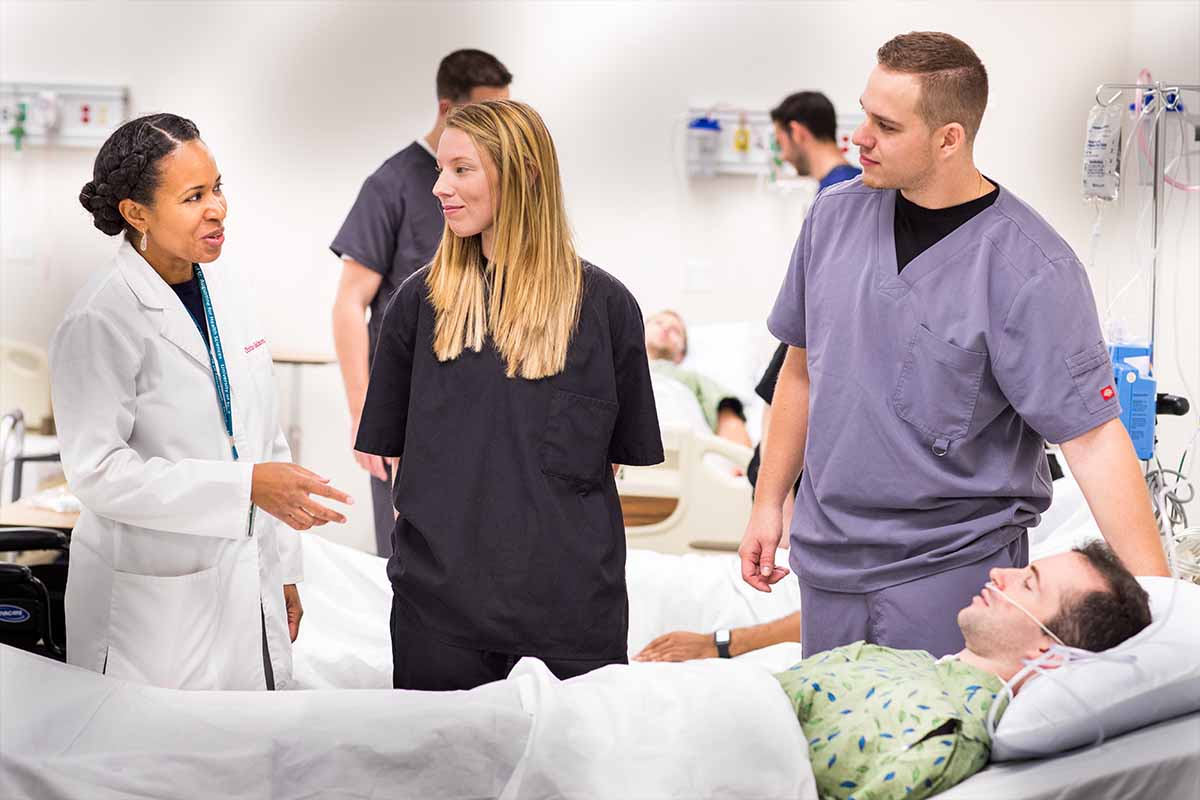Micki Allred (MS-SLP ’22) with long-term Pointe Meadows resident Jim Ahlander (left)
As a graduate student clinician at Pointe Meadows Health and Rehabilitation in Lehi, UT, Micki Allred (MS-SLP ’22) assisted with augmentative and alternative communication while providing aid to dementia patients. Upon graduation, she accepted a position with Pointe Meadows and Provo Rehab.
In her first month of full-time employment, Allred has already impacted many people’s lives, especially with one patient named Jim Ahlander.
Jim is a long-term Pointe Meadows resident with dementia and a history of cerebrovascular accident and stroke. He lost his vision late in life and became blind five years ago. He has a complex and dynamic personality with a wealth of lifetime experience. He raised five children as a single dad, ran his own business, played professionally as a jazz drummer and earned a black belt in martial arts.
Jim spent the majority of his time in bed when he was initially admitted to Pointe Meadows, resisting wheelchair assistance and not engaging in activities. On numerous occasions, Jim would state, “I have no purpose.” With hearing loss, he had a substantially lower threshold for background noise and displayed agitation in challenging settings like the dining room. Enter Micki Allred.
Speech Therapy through Music
Before obtaining her MS-SLP at University of St. Augustine for Health Sciences, Allred earned a master’s in music. Through interviews and personal history questions, Allred discovered that Jim and her musician husband (John) MS-SLP Graduate Connects Music with Patient Therapy Lesson have common connections. John’s friend, Lars Yorgason, who is a well-known bassist from the ’60s, played in the same band as Jim!
Allred set to work to make speech therapy relevant for Jim and many other Pointe Meadows residents.
John and Lars performed jazz music while demonstrating the topics Allred taught regarding improvisation, melody and musical dynamics.
Thirty patients and residents gave the group their undivided attention.
Jim sat in the front row for the entire 50-minute session, stayed for an hour to visit with other residents and then ate lunch in the dining room. He had plenty of energy afterward and a willingness to engage in occupational therapy after lunch.










